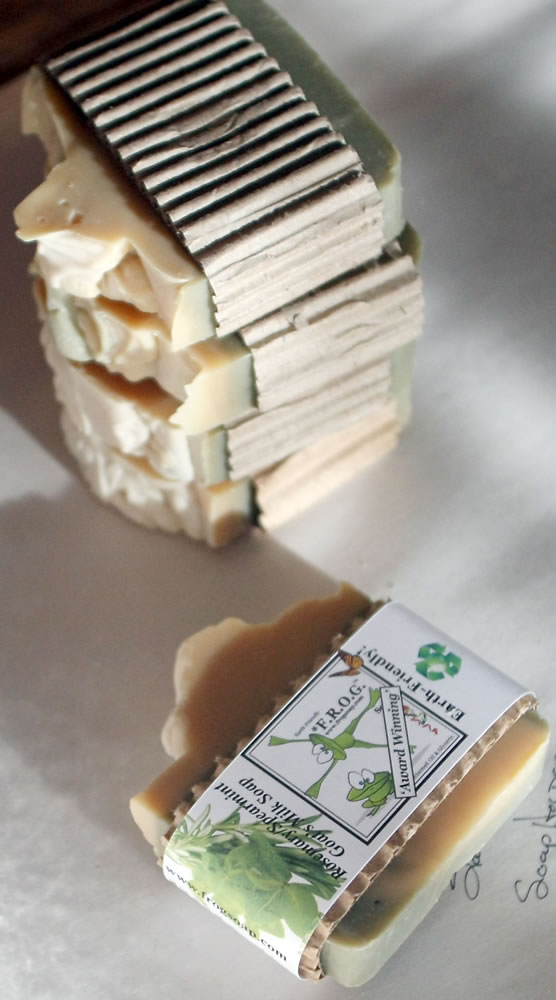BREMERTON — Laura Kneib’s handmade soaps might smell like rosemary, spearmint or lavender.
They start out smelling a little like lunch.
“You’ll get a whiff of french fries here at the beginning,” she said one recent morning, as she made goat milk-infused soap. Kneib poured a bottle of amber-colored oil through a strainer on her counter. A faint odor of fried potatoes drifted across the room.
Like many craft soap makers, Kneib uses vegetable oil as a base ingredient. Unlike most, she collects it from local family restaurants, where it has already been used for cooking.
Kneib filters the oil and mixes it with lye, water, essential oils and other natural ingredients in a variety of cleansers. She calls it FROG Soap, for “From Recycled Oil & Glycerin.”
Despite their culinary origins, the finished bars look, feel and smell like something you’d want to rub on your body. Any oily odors have been replaced by herbal scents.
“You get past the whole ‘yuck’ factor of the french fry oil,” Kneib said. “This is proof positive that just because something is earth-friendly, and you’re reusing stuff, doesn’t mean it has to look ugly and smell bad.”
Kneib has built a small business around FROG Soap, but she sees global potential in the concept. Each bar she packages uses more than a quarter-pound of reused material, counting the oil and recycled cardboard wrappers. She estimates she’s reused more than 2 tons of material since she started selling soap this year.
If her methods were replicated internationally, she believes it could keep massive quantities of resources from landfills.
Kneib, who retired recently from a career in graphic design, has tinkered with soap-making for most of her life. A trip to a restaurant about two years ago inspired her to try making soap with used veggie oil. She refined her techniques through trial-and-error, searching for the right consistency. Her bars gradually became more appealing and friends urged her to make more.
“And here I am,” she said.
Her repertoire has grown to include shampoos, dog soap, shaving soap, laundry powder, lip balm and creams. Recently, she developed a fast-acting soap for caregivers to use on clients or loved ones who are difficult to bathe.
Kneib sells the soap through a website, at farmers markets and holiday bazaars, and at a few local stores. She’s converted an upstairs guest room for packing and shipping, and a part-time employee helps her keep up with orders.
FROG Soap prices range between $4 and $6 a bar. Kneib declined to share her costs, but said the business earns a healthy profit.
Demand is already strong and growing, she said. On her own, she can produce about 224 bars of soap per day. She expects sales to surpass her production capacity within the next year.



